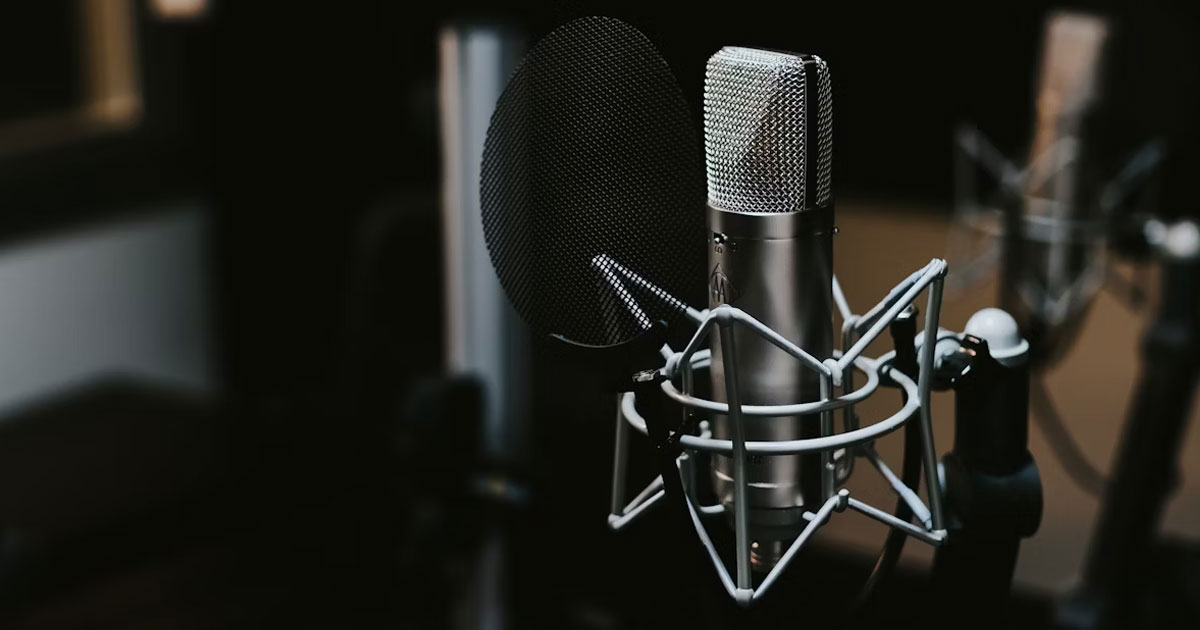Many people still don’t know what a podcast really means. They often confuse it with radio or YouTube videos.
When they hear the word “podcast,” they feel unsure. Some even avoid it just because they don’t understand it.
This lack of knowledge can make people miss out on useful and fun content. Podcasts are a great source of learning and entertainment.
But here’s the good news — understanding a podcast is very easy. You don’t need technical knowledge to get started.
This blog will explain the podcast meaning in Urdu in simple words. We’ll cover all the types, benefits, and how you can even start your own podcast.
By the end, you’ll know everything about podcasts in a clear way. So let’s get started!
What Is a Podcast? | Podcast Meaning in Urdu
The word “podcast” is made from two parts: “iPod” and “broadcast.” It started when people used iPods to listen to audio files like songs and talks.
Now, the term is used for audio or video files shared online. You can listen to them anytime, from anywhere.
In simple Urdu, Podcast ka matlab hai aik aisa audio ya video file jo aap internet par suntay ya dekh saktay hain.
Log isay record karte hain aur platforms par upload karte hain jahan aap baad mein sun saktay hain.

Most podcasts are like recorded conversations or interviews. Two or more people sit together and talk about a specific topic.
You don’t always see them on video. Many podcasts are audio-only and perfect for listening while working or traveling.
It’s like a modern version of radio. But it’s more flexible, personal, and available anytime.
You can find podcasts in English, Urdu, or any language you prefer. And the best part is, many of them are free.
Origin and History of the Word Podcast
The word “broadcast” was first used in farming. It meant spreading seeds across a large area.
Later, when radio and TV were invented, the word “broadcast” was used for spreading signals. People started using it for news, shows, and music shared over a wide area.
Then came the iPod, a small device used to listen to songs. People thought, why not add interviews, stories, and discussions to it?
That’s how the term “podcast” was born. It combined “iPod” and “broadcast.”
At first, podcasts were audio-only and played on iPods. But with smartphones and better internet, podcasts became available on many devices.
Now, you don’t need an iPod at all. You can listen to podcasts on phones, laptops, or even smart speakers.
The name stayed the same, but the way we listen has changed a lot. And today, podcasts are more popular than ever.
Read this: How To Stop Replies to Your Tweets in 3 Easy Steps
Types of Podcasts
Podcasts are available in many styles. Each type offers a unique experience for the listener.
1. Interview Podcast
This type involves one host interviewing a guest. The guest may share personal stories, challenges, and insights from their life or career.
A great example is The Joe Rogan Experience, where Joe talks to celebrities, scientists, and even athletes in long-form conversations.
In Pakistan, The Pakistan Experience follows a similar format, interviewing public figures and experts from different fields.
2. Storytelling Podcast
Storytelling podcasts are perfect for those who love a good story. These can be real-life events, history-based narratives, or even fictional tales.
The podcast Serial became world-famous by telling one true crime story over several episodes, using a gripping narrative.
3. Educational Podcast
Educational podcasts are focused on learning. They help you grow your knowledge on specific subjects like science, productivity, or language learning.
TED Talks Daily is a popular podcast that brings educational talks in short, easy-to-understand episodes.
Likewise, Learn With Shahzad Ahmad Mirza is an Urdu-language podcast designed for self-improvement and practical learning.
4. News and Current Affairs Podcast
This type covers daily news, politics, and national or international affairs. Experts and journalists often join the conversation to give their views.
For instance, The Daily by The New York Times summarizes important global news in just 20 minutes.
For Urdu listeners, BBC Urdu Podcast provides daily updates and analysis of current events in Pakistan and around the world.
5. True Crime Podcast
These podcasts focus on real criminal cases and police investigations. They often feel like detective stories that keep listeners hooked.
Criminal is a famous English podcast that dives into unusual and thought-provoking crimes.
6. Comedy Podcast
Comedy podcasts are made to make people laugh. Hosts joke around, share funny stories, or comment humorously on current topics.
Conan O’Brien Needs A Friend is one of the most loved comedy podcasts around the world.
7. Panel Podcast
This podcast format features a group discussion, usually with four to six people. Everyone shares their views on one topic, leading to a deep and balanced conversation.
A good example is The Moth, where different people share true stories on stage.
Chai, Toast aur Host is an Urdu podcast that uses the panel format to discuss trending cultural and social topics.
8. Business and Finance Podcast
These podcasts invite business owners, financial experts, and entrepreneurs to share their knowledge and strategies.
How I Built This is a popular business podcast where founders of big companies explain how they started and succeeded.
9. Health and Wellness Podcast
These cover mental and physical health, including diet, fitness, and emotional well-being.
The Mindset Mentor shares daily tips for improving your mood, habits, and mindset.
10. Lifestyle Podcast
Lifestyle podcasts talk about daily life, habits, relationships, and managing stress. They offer personal tips and motivation to improve your life.
The Minimalists Podcast encourages people to live simply and focus on what matters.
Great! Here’s the next section of your blog post:
How to Start Your Own Podcast?
Starting a podcast may sound difficult, but it’s easier than most people think. You don’t need expensive equipment or a big team to begin.
1. Pick a Topic You Care About
Choose a subject you’re passionate about.
It could be anything—sports, education, history, health, or daily life.
2. Know Your Audience
Think about who will listen to your podcast.
What age group? What interests do they have? This will help shape your content.
3. Choose the Format
Decide if you want to do solo episodes, interviews, storytelling, or panel discussions.
Stick to a format that suits your style and topic.
4. Write a Simple Script or Outline
You don’t need to write every word, but a short outline helps keep your thoughts clear.
This also reduces mistakes and saves editing time later.
5. Get Basic Equipment
Start with a good-quality microphone and headphones.
You can use free tools like Audacity or online platforms like Anchor to record and edit your podcast.
6. Record in a Quiet Place
Avoid background noise.
Even recording at home works well if the space is quiet.
7. Edit and Improve the Audio
Clean up the recording to remove mistakes or long pauses.
Add intro music or sound effects if needed, but keep it simple in the beginning.
8. Upload to a Podcast Platform
Use platforms like Spotify for Podcasters (Anchor), YouTube, or Apple Podcasts.
Follow their steps to upload your audio and write a short description.
9. Promote Your Podcast
Share your episodes on social media, WhatsApp groups, or your blog.
Ask your friends and listeners to give feedback and reviews.
10. Be Consistent
Release episodes on a fixed schedule, weekly, bi-weekly, or monthly.
Consistency builds trust and helps grow your audience.
Awesome! Here’s the next section:
Ways to Make Money from a Podcast?
Once your podcast starts gaining listeners, there are many ways to earn from it. You don’t need millions of followers to start making money, just a loyal audience and valuable content.
1. Sponsorships and Advertisements
Brands pay podcasters to mention or promote their products.
You can give a short ad at the beginning or middle of your episode.
For example, if you run a health podcast, a fitness brand might want to sponsor your content.
2. Listener Donations and Memberships
Many podcasters ask their audience to support them.
You can use platforms like Patreon or Buy Me a Coffee to accept small monthly donations.
In return, offer bonus content or shout-outs to your supporters.
3. Affiliate Marketing
You can recommend products or services and earn a commission when someone buys through your link.
This works well for podcasts that review books, tech gadgets, or online courses.
4. Selling Your Own Products or Services
If you’re an expert in something, offer it through your podcast.
You can sell eBooks, merchandise, online courses, or consulting services.
For example, a finance podcaster might offer a budgeting course.
5. Hosting Live Events or Webinars
Once you have a loyal fan base, you can host live shows or online workshops.
Listeners are often willing to pay for a more personal and direct experience.
6. Publishing a Book
Many podcasters turn their best episodes into books.
You can collect insights, stories, or tips from your podcast and publish them in an easy-to-read format.
7. Monetizing Through YouTube
If you upload your podcast in video format on YouTube, you can earn through YouTube’s ad program.
Just make sure your content meets YouTube’s guidelines and grows steadily over time.
8. Partnering with Other Creators
Collaborations with other podcasters or influencers can open up income opportunities.
You can co-create content or promote each other’s products and earn through partnerships.
Conclusion
Podcasts have become one of the most powerful tools for sharing ideas and stories. Whether you’re a student, professional, or just someone with a passion, podcasting gives you a voice.
It’s simple to start, doesn’t need a big budget, and allows you to connect with people around the world. You can talk about anything, from daily life to deep topics, and build your own loyal audience.
We’ve seen how podcasts work, the types available, where to publish them, and even how to earn from them. Now the only thing left is to take the first step.
Don’t wait for the perfect moment. Just pick a topic, hit record, and share your thoughts.
Your podcast might be the next big thing people love to listen to.
